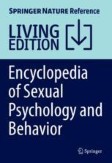Search
Search Results
-
Stimulus-Stimulus Pairing
The present chapter provides an overview of the stimulus-stimulus pairing procedure as it has been studied within applied behavior analysis,...
-

-
One-shot stimulus-control associations generalize over different stimulus viewpoints and exemplars
Cognitive control processes are central to adaptive behavior, but how control is applied in a context-appropriate manner is not fully understood. One...

-
Stimulus Control
Stimulus control is established by a history of differential consequences, meaning when in the presence of one stimulus, a behavior is consistently...
-

-
The distinct development of stimulus and response serial dependence
Serial dependence (SD) is a phenomenon wherein current perceptions are biased by the previous stimulus and response. This helps to attenuate...

-
Auditory–Visual Discriminations: Stimulus Control, Teaching Procedures, and Considerations
Stimulus control involves being more likely to engage in a target behavior in the presence of a stimulus than in its absence. These stimuli are...
-
Reaction Time “Mismatch Costs” Change with the Likelihood of Stimulus–Response Compatibility
Dyadic interactions require dynamic correspondence between one’s own movements and those of the other agent. This map** is largely viewed as...

-

-
Transforming digital technology stimuli into willingness of green travel: the roles of environmental concerns and online green motivation
Based on stimulus-organism-response theory and goal-framing theory, this study aims to explore how and under what conditions digital technology...

-
Stimulus Avoidance Assessment: A Systematic Literature Review
Board certified behavior analysts are ethically required to first address destructive behavior using reinforcement-based and other less intrusive...

-
Relations between Verbal Self-Stimulation, Stimulus Modality, and Accuracy in an Operant Task
From an operant perspective, verbal behavior is multiply controlled by different sources of stimulation, including self-stimulation. Self-stimulation...

-
Controlling response order without relying on stimulus order – evidence for flexible representations of task order
In dual-task situations, both component tasks are typically not executed simultaneously but rather one after another. Task order is usually...

-
A Review of Backward Higher-Order Conditioning: Implications for a Pavlovian Conditioning Analysis of Stimulus Equivalence
Stimulus equivalence (SE) is demonstrated when participants exposed to conditional discrimination training pass tests for reflexivity, symmetry,...

-
Cognitive control controls the effect of irrelevant stimulus-response learning
Research has established that two cognitive processes, cognitive control and irrelevant stimulus-response (S-R) learning, may underlie the proportion...

-
Reconciling categorization and memory via environmental statistics
How people represent categories and how those representations change over time is a basic question about human cognition. Previous research has...

-

-
Insistence on Sameness in Autistic Children: a Stimulus Control Analysis with Implications for Assessment and Support
ObjectivesA characteristic of some individuals with autism is described as an “insistence on sameness.” For these individuals, a violation of...

-
Distal and Proximal Sources of Stimulus Control in a Virtual Maze as a Function of Task Difficulty: A Preliminary Study
This preliminary study sought to examine stimulus control influences on navigation behaviors of adult human participants in a virtual simulation of a...

-
Emergency and costs effect pro-environmental behavior: an event-related potential (ERP) study
Pro-environmental behavior requires individuals to pay the cost to improve or protect the environment. The arousal: cost-reward model holds that...

